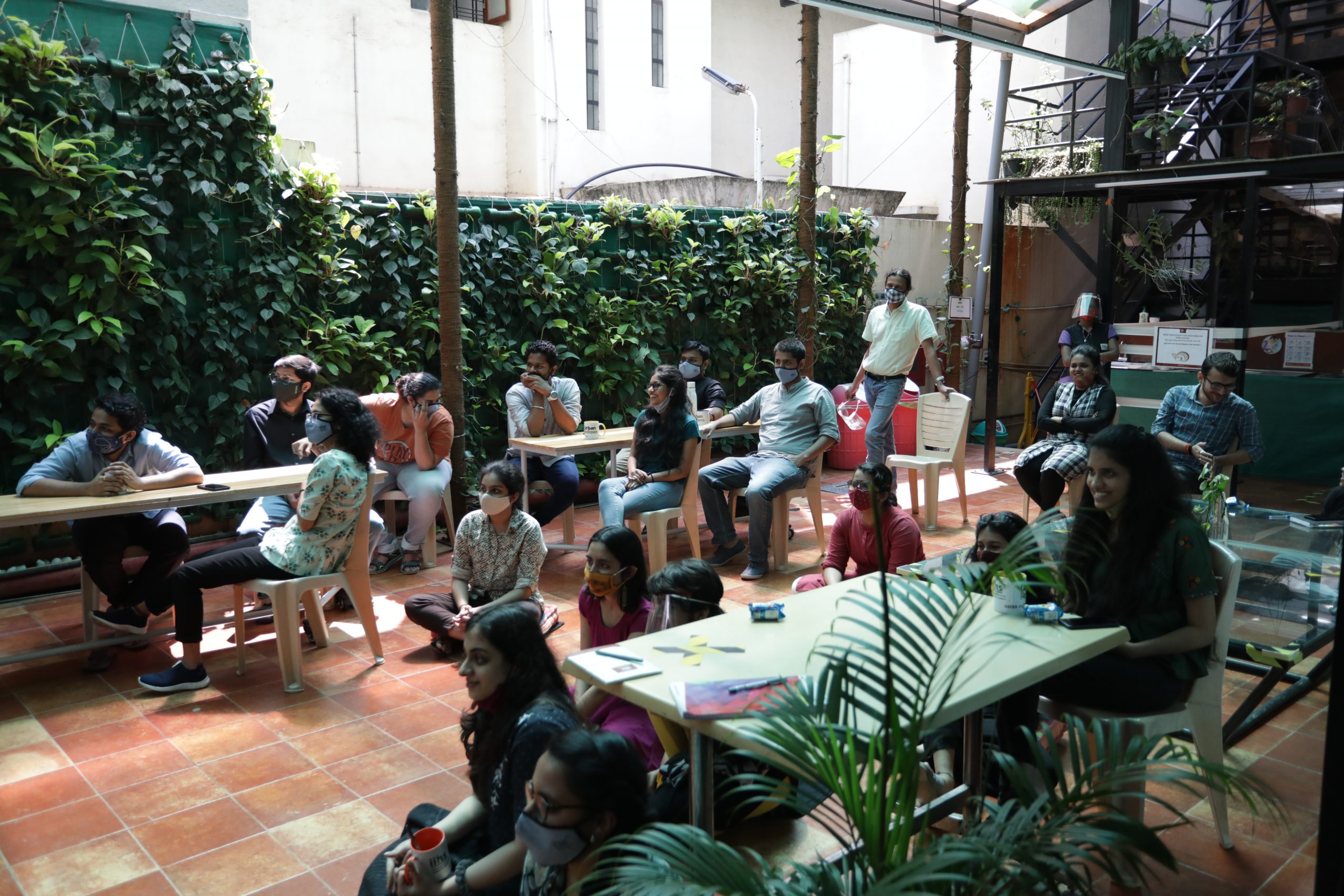Help Shape India’s Transition Through the Urban Fellows Programme at IIHS

India is headed towards the most significant urban transition, estimated to add 30 crore urban residents by 2050. This transition will bring economic development opportunities and improved employment, as well as challenges of inequality, deprivation, and environmental degradation.
Convert challenges into opportunities
This task requires collective and coordinated efforts by governments, private enterprises, civil society, communities, and citizens. The emerging urban transition calls for practitioners with adequate knowledge, reflective thinking, appropriate skills, new perspectives, and the correct values. Practitioners who can enable the integration, management, and coordination of multiple processes in today’s urban settlements.
The Indian Institute for Human Settlements (IIHS) is a national education institution that has undertaken to develop and teach original, innovative, and reflective knowledge about the urban transition by integrating methods and approaches across wide-ranging disciplinary and practice traditions.
Through the UFP, IIHS seeks to equip, nurture, and prepare a new generation of practitioners to address India’s complex urban challenges.
What is the UFP?
UFP or the Urban Fellows Programme is full-time, residential, scholarship-based and conducted out of the IIHS Bengaluru City Campus. The interdisciplinary UFP introduces learners to diverse forms of urban practice through classroom-based teaching, site-based applied learning, work in live projects and internships.
Who can enroll?
Graduates and young professionals born on or after 1 August 1991 are eligible to apply. All candidates must have basic proficiency in reading English. However, there is support available for candidates with limited speaking ability in English.
What does the Program teach?
The UFP program will provide Fellows with
- An insight into the issues of urbanization in India and global South
- The skills needed to analyze, understand and identify the core problems of urban India
- The groundwork to prepare inter-disciplinary urban interventions
- A diversified network of global, national, and local thought leaders, entrepreneurs, and change-makers
- The experience of blended learning of theory and practice from a diverse faculty
What do the Fellows have to say?
A look at what a few of the Current Fellows have to say-
Akbar A
Akbar is an artist and designer and passionate about using spatial design to create social change and ecological empowerment.
According to him, the UFP opened opportunities for Fellows and allowed them to explore and understand the challenges of urbanization through various lenses, and taught how to tackle them.
Fellows were also given an opportunity to participate with the faculty in real-time projects. This exposure allowed Fellows to grasp theory with some practical experience.
Aanchal Aggarwal
Aanchal, a graduate of architecture, has worked in the hospitality and education sectors. She says that the UFP Commons sessions changed her perspective of a city. Instead of the plain architectural angle through which she had viewed a city, she also understood the economic, cultural, and government perspectives. She learned to understand intricacies of the urban by looking at the various sides a city has.
Aarya Pathak
Aarya, a physics graduate, found the UFP well-aligned to help fellows learn their chosen specialties. The faculty helped guide the fellows through both, theory and projects in the course. She felt that the Practica allowed her to experience applications of the practice lessons.
Adarsh Tripathi
Adarsh is a planner fascinated with how society as a system works. He finds the city to be a working urban lab to learn social dynamics. He understands the value of affordable education and wants to support marginalized communities.
Adarsh made the anthropological connection with the environment at UFP. He says it is crucial to get in touch with the human side to understand how surroundings affect each other. He found the UFP content to be relevant and exhaustive.
Click to view more testimonials.
The unique UFP course structure
The UFP draws from IIHS’s curriculum co-created in partnership with the world’s leading universities, in addition to nearly a hundred practitioners and scholars from across India.
The UFP comprises of seven learning elements: Commons, Electives, Applied Practica and Projects, Skill Labs, Exposure Visits and Masterclasses and Internships. These are structured across three terms: Commons, Electives, and Internships. Fellows are in Bangalore, on campus for the first two terms and in their internship placements for the third. There is an exposure visit held in between the terms. Skill Labs, Applied Practica and Projects and Masterclasses run throughout the Commons and Elective terms.
If you want to help shape India’s urban transition, join the Urban Fellows Programme 2021-22. To learn more about the UFP click here.
